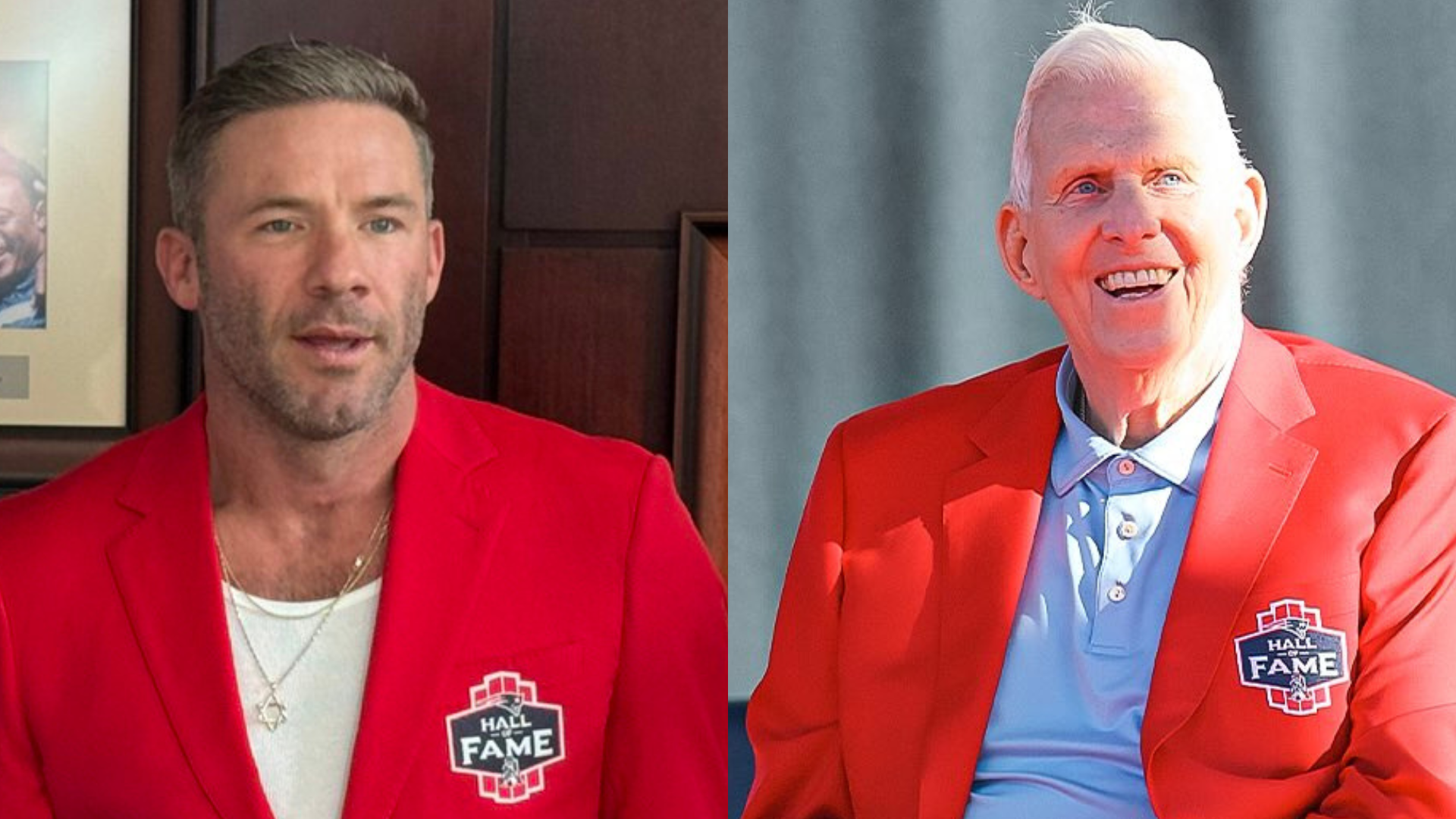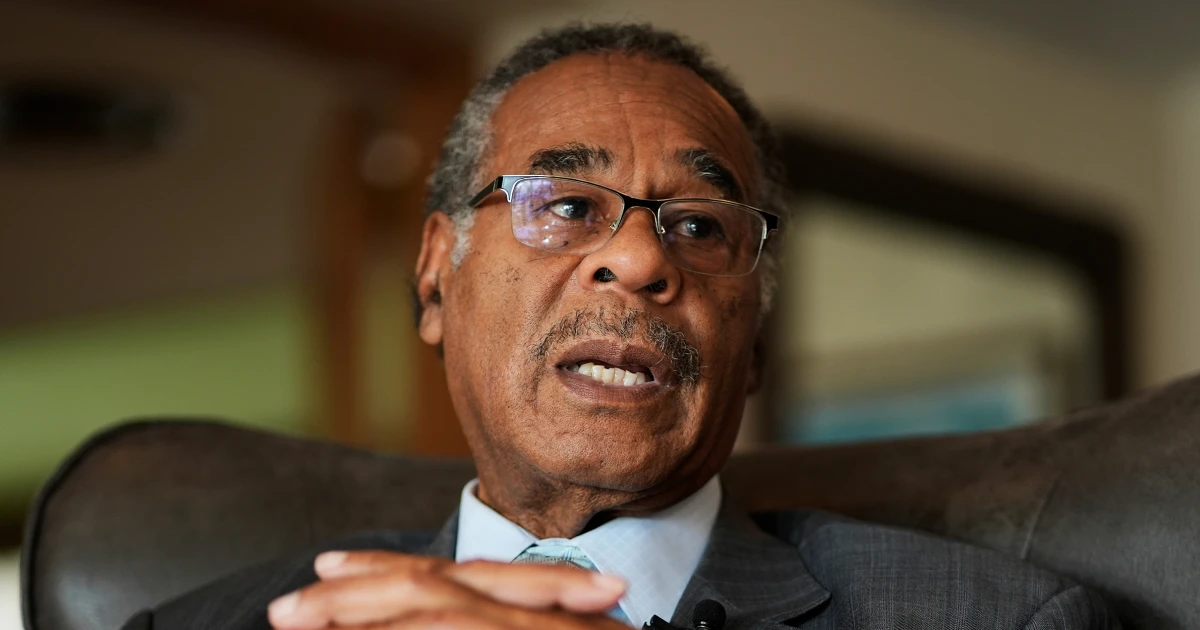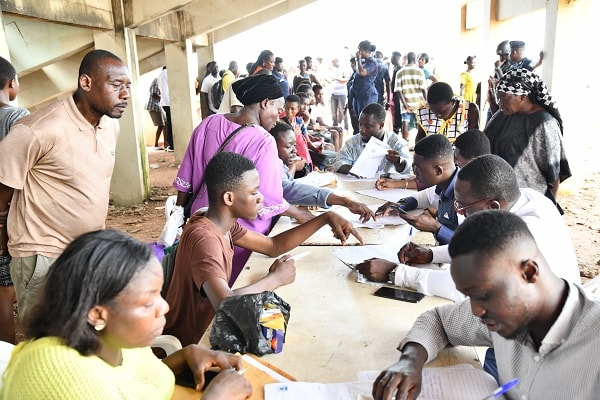
The moment Julian Edelman walked on stage in that red jacket on September 20, Foxborough knew this was going to be special. The former seventh-round pick turned three-time Super Bowl champion stood at the podium and looked around Gillette Stadium. “This place is huge,” he said, pointing at the fans, his family in the front row, and smiling at his daughter.
“To be standing up here today being inducted into the Patriots Hall of Fame is pretty surreal.” Edelman reminded everyone what his journey really looked like. Not just the highlights. Not just the clutch catches. He talked about driving to Gillette every day as a young player, praying it would not be his last time walking through those doors. “There is so much uncertainty that comes with being a late round pick chasing your dream,” he admitted.
Julian Edelman smiled as he recalled the milestones. Three Super Bowl rings. The MVP trophy from Super Bowl LIII after torching the Rams for 141 yards. “I was not the fastest or the biggest guy,” he said. “But I knew if I worked harder than anyone, I could earn my spot.”
ADVERTISEMENT
Article continues below this ad
He reminded the fans that he ranks third in NFL history in postseason receptions and yards, right behind Jerry Rice. “Those playoff nights under the lights, those were my favorite moments,” he said as the crowd roared.
Edelman thanked Robert Kraft for creating a culture where guys like him could not just survive but thrive. The 39-year-old praised the front office, the trainers, the equipment staff, even the lunch ladies.
ADVERTISEMENT
Article continues below this ad
Because, as Edelman put it, “Everyone here cared. Everyone did their job.”
Of course, there were plenty of stories about Tom Brady. Edelman recalled the first time he saw TB12 throw a football.
“Holy smokes” he said, laughing. He shared a classic Brady line that still sticks with him. “Babe, if all you ever do is all you ever done, then all you ever get is all you ever got.” Edelman grinned and admitted he had no clue what it meant at first, but it became a mantra that pushed him to work smarter.
Edelman also reflected on the brotherhood he built in New England. The late nights, the early mornings, the grind. Shouting out Danny Amendola, Rob Ninkovich, Devin McCourty, Matthew Slater, and so many others who pushed him to keep going.
“A team makes you hold yourself to a higher standard than you ever thought was possible because you do not want to let the guys down,” the veteran said.
Then came the family thanks. He spoke about his mom’s toughness, his dad’s relentless work ethic, and how those lessons shaped him.
“You taught me the importance of routine,” he said to his father. “Keep your head down, no sniveling, and get to work.” He thanked his siblings for toughening him up and making him fearless. And finally, he turned to his daughter.
“Everything I do, I do for you,” Edelman said, visibly emotional. “If you commit to something and give 100 percent, there is nothing you cannot do. Focus and attitude.”
The speech closed the way you would expect from Julian Edelman.
Defiant and inspiring. “Do not let where you start dictate where you finish,” he told the crowd. “Life is simple but hard. It is simple knowing what you have to do. The hard part is actually doing it. I will always be proud to say I am a New England Patriot. This place made me who I am today.”
And just like that, Foxborough had its sendoff.
As Edelman wrapped up his story, another Patriots legend began his.
Bill Parcells dives into the past in HOF ceremony
Retired NFL coach Bill Parcells entered the Patriots Hall of Fame by revisiting his roots. “This is kind of melancholy for me,” Parcells admitted, and you could feel why.
In 1980, he was just a young linebackers coach with a dream, stepping onto a practice field at Bryant College in Smithfield, Rhode Island, giving himself a private pep talk. “Parcells, we’re really doing this now, and we’re going to find out what you got,” he recalled. It was raw and personal.
It was the start of something that would shape him, and eventually, the Patriots.
The Big Tuna nickname was born here too, the moment he decided players weren’t going to get away with cutting corners on his watch. If you tried, you’d get that famous Parcells bark. “Who do you think I am? Charlie the Tuna?” And you knew the tone had been set.
Parcells didn’t just thank the Patriots organization, he unpacked the blueprint of his football education. Bucko Kilroy, the GM, and Mike Holovak, the personnel director, became his professors.
“They taught me every single aspect of personnel acquisition in the NFL,” Parcells said. They made him learn the draft system, the trade mechanics, the evaluation process for every position, and they tested him.
When Parcells came back in 1993, the Patriots were a mess, 2–14 the year before. He stabilized them, got Drew Bledsoe under center, built a roster, and dragged New England back to relevance. By 1994, they were 10–6 and back in the playoffs for the first time in eight years.
By 1996, they were division champs for the first time in 11 years, hosting playoff games that had been unthinkable just a few seasons earlier. And then came Super Bowl XXXI, a loss to Brett Favre and the Packers, yes, but a symbol that the Patriots were officially back in the NFL’s upper class.
“When Robert came, now we got the resources to compete too,” Parcells said, acknowledging Kraft’s role in turning the Patriots into a modern powerhouse. He thanked the coaches, the players who “withstood it and profited from it,” and even his longtime assistant Kathleen O’Neal and franchise stalwart Nancy Meyer, calling her “a true, true Patriot.”
The crowd roared loudest when Parcells turned to Julian Edelman and grinned. “I wish I could have got my hands on you, buddy,” he said.
ADVERTISEMENT
Article continues below this ad
You could feel the room lean in, wishing for an alternate history where Edelman played for the Big Tuna. And then, Parcells closed it the way only Parcells could, with humility, with a touch of gravel in his voice, and with a nod to what this place meant.
“This place has a place in my heart,” he said. “It always will.” This wasn’t just a Hall of Fame speech. It was a reconciliation, a moment where history came full circle.



